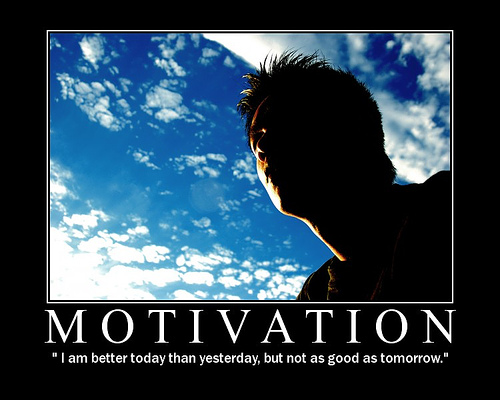Problem solving is a key skill, and it's one that can make a huge difference to your career. At work, problems are at the center of what many people do every day. You're either solving a problem for a client (internal or external), supporting those who are solving problems, or discovering new problems to solve.

The problems you face can be large or small, simple or complex, and easy or difficult to solve. Regardless of the nature of the problems, a fundamental part of every manager's role is finding ways to solve them. So, being a confident problem solver is really important to your success.
Much of that confidence comes from having a good process to use when approaching a problem. With one, you can solve problems quickly and effectively. Without one, your solutions may be ineffective, or you'll get stuck and do nothing, with sometimes painful consequences.
There are four basic steps in problem solving:
- Defining the problem.
- Generating alternatives.
- Evaluating and selecting alternatives.
- Implementing solutions.
Steps 2 to 4 of this process are covered in depth in other areas of Mind Tools. For these, see our sections on Creativity for step 2 (generating alternatives); Decision Making for step 3 (evaluating and selecting alternatives); and Project Managementfor step 4 (implementing solutions).
The articles in this "Problem Solving" section of Mind Tools therefore focus on helping you make a success of the first of these steps – defining the problem. A very significant part of this involves making sense of the complex situation in which the problem occurs, so that you can pinpoint exactly what the problem is. Many of the tools in this section help you do just that. We look at these, and then review some useful, well-established problem-solving frameworks.
Defining the Problem
The key to a good problem definition is ensuring that you deal with the real problem – not its symptoms. For example, if performance in your department is substandard, you might think the problem is with the individuals submitting work. However, if you look a bit deeper, the real problem might be a lack of training, or an unreasonable workload.
Tools like 5 Whys, Appreciation and Root Cause Analysis help you ask the right questions, and work through the layers of a problem to uncover what's really going on.
At this stage, it's also important to ensure that you look at the issue from a variety of perspectives. If you commit yourself too early, you can end up with a problem statement that's really a solution instead. For example, consider this problem statement: "We have to find a way of disciplining of people who do substandard work." This doesn't allow you the opportunity of discovering the real reasons for under-performance. The CATWOE checklist provides a powerful reminder to look at many elements that may contribute to the problem, and to expand your thinking around it.
Understanding Complexity
When your problem is simple, the solution is usually obvious, and you don't need to follow the four steps we outlined earlier. So it follows that when you're taking this more formal approach, your problem is likely to be complex and difficult to understand, because there's a web of interrelated issues.
The good news is that there are numerous tools you can use to make sense of this tangled mess! Many of these help you create a clear visual representation of the situation, so that you can better understand what's going on.
Affinity Diagrams are great for organizing many different pieces of information into common themes, and for discovering relationships between these.
Another popular tool is the Cause-and-Effect Diagram. To generate viable solutions, you must have a solid understanding of what's causing the problem. Using our example of substandard work, Cause-and-Effect diagrams would highlight that a lack of training could contribute to the problem, and they could also highlight possible causes such as work overload and problems with technology.
When your problem occurs within a business process, creating a Flow Chart, Swim Lane Diagram or a Systems Diagram will help you see how various activities and inputs fit together. This will often help you identify a missing element or bottleneckthat's causing your problem.
Quite often, what may seem to be a single problem turns out to be a whole series of problems. Going back to our example, substandard work could be caused by insufficient skills, but excessive workloads could also be contributing, as could excessively short lead times and poor motivation. The Drill Down technique will help you split your problem into smaller parts, each of which can then be solved appropriately.
Problem-Solving Processes
The four-step approach to problem solving that we mentioned at the beginning of this article will serve you well in many situations. However, for a more comprehensive process, you can use Simplex, Appreciative Inquiry or Soft Systems Methodology (SSM). These provide detailed steps that you can use to solve a problem effectively.
Simplex involves an eight-stage process: problem finding, fact finding, defining the problem, idea finding, selecting and evaluating, planning, selling the idea, and acting. These steps build upon the basic process described earlier, and they create a cycle of problem finding and solving that will continually improve your organization.
Appreciative Inquiry takes a uniquely positive approach by helping you solve problems by examining what's working well in the areas surrounding them.
Soft Systems Methodology is designed to help you understand complex problems so that you can start the process of problem solving. It uses four stages to help you uncover more details about what's creating the problem, and then define actions that will improve the situation.
Using these tools – and others on our Problem Solving menu – will help you improve your approach to solving the problems that your team and your organization face. You'll be more successful at solving problems and, because of this, more successful at what you do. What's more, you'll begin to build a reputation as someone who can handle tough situations, in a wise and positive way.
Enjoy these articles, and welcome to enjoyable problem solving!
Click Next Article below to start navigating through these tools.





